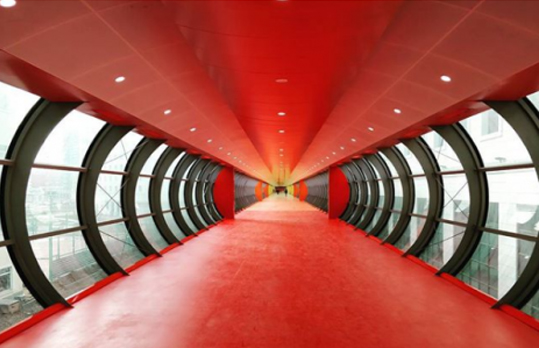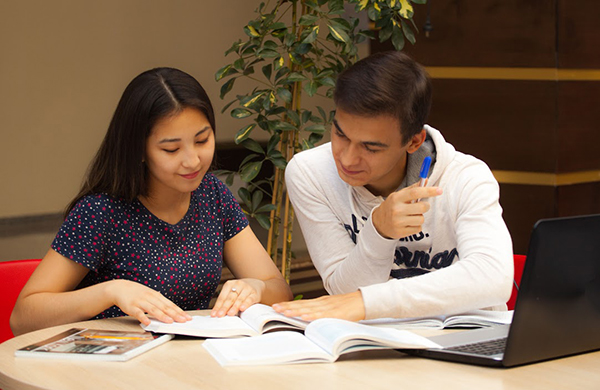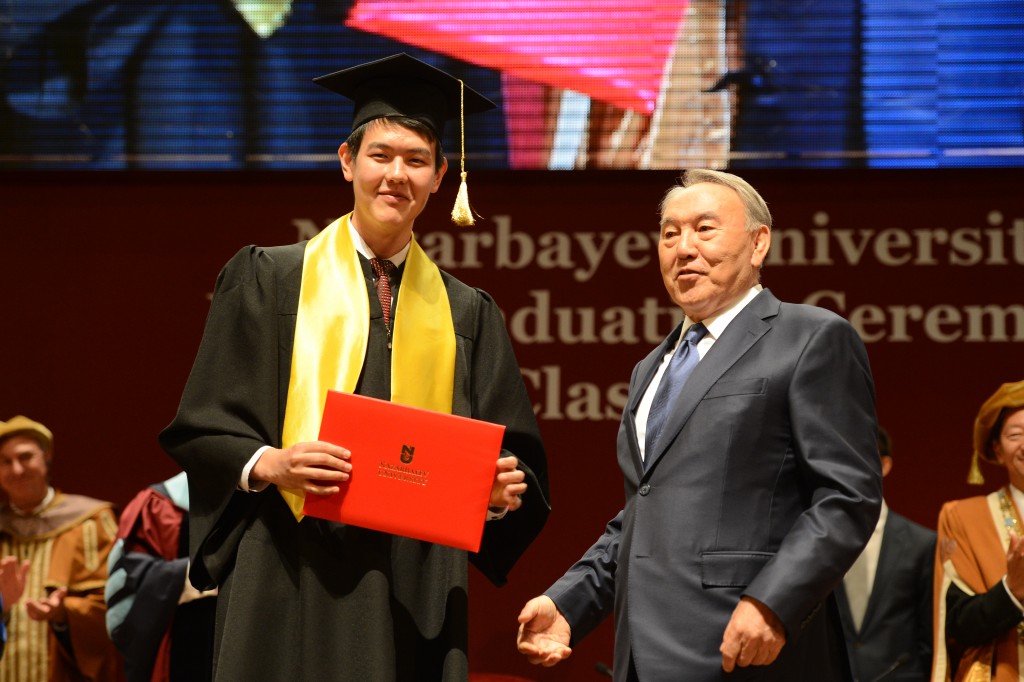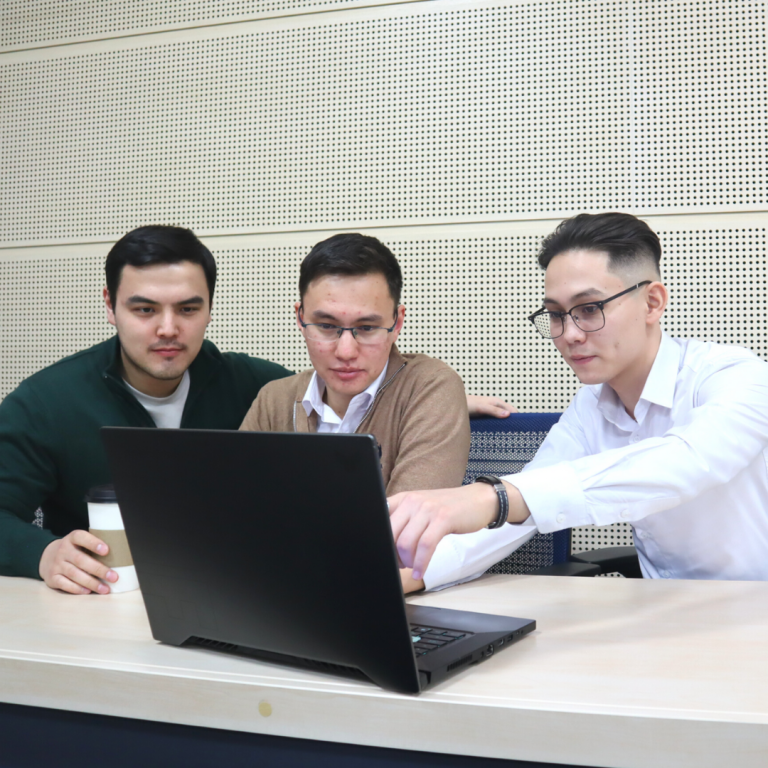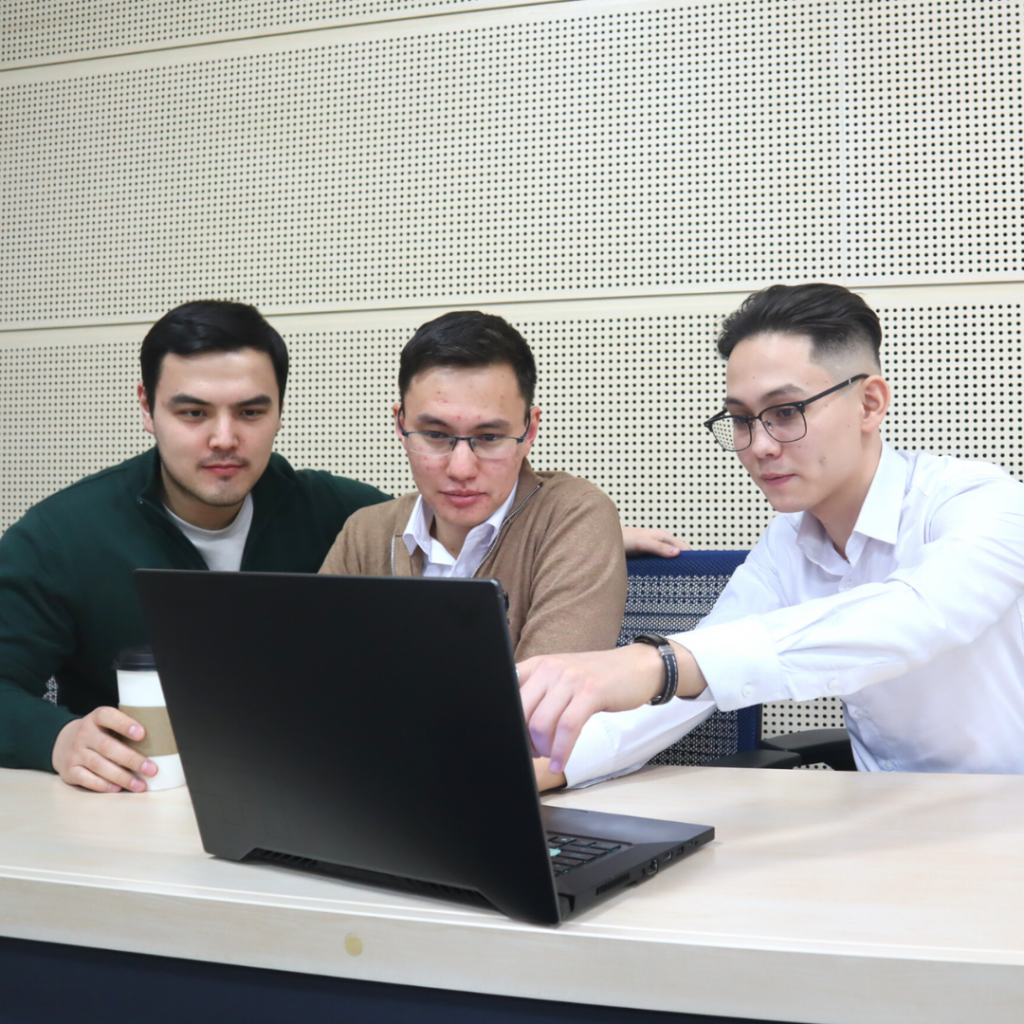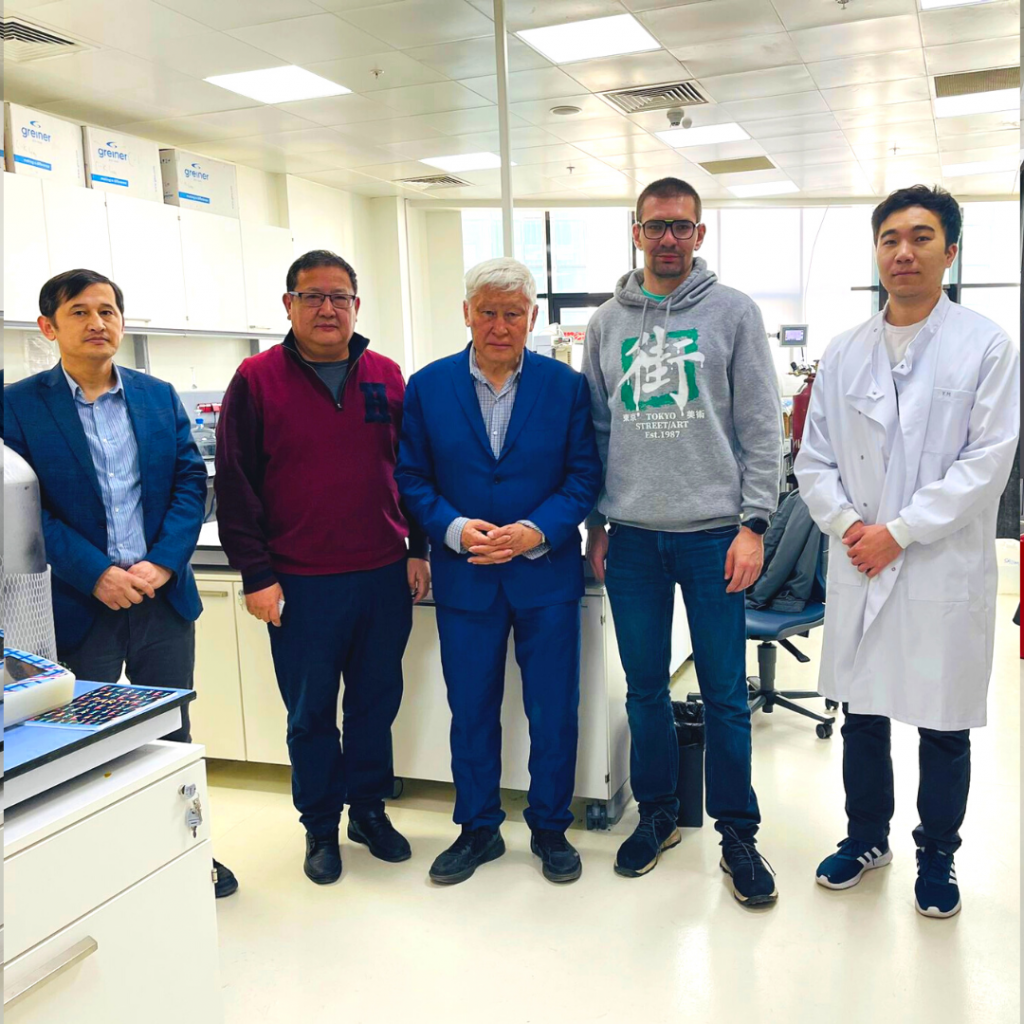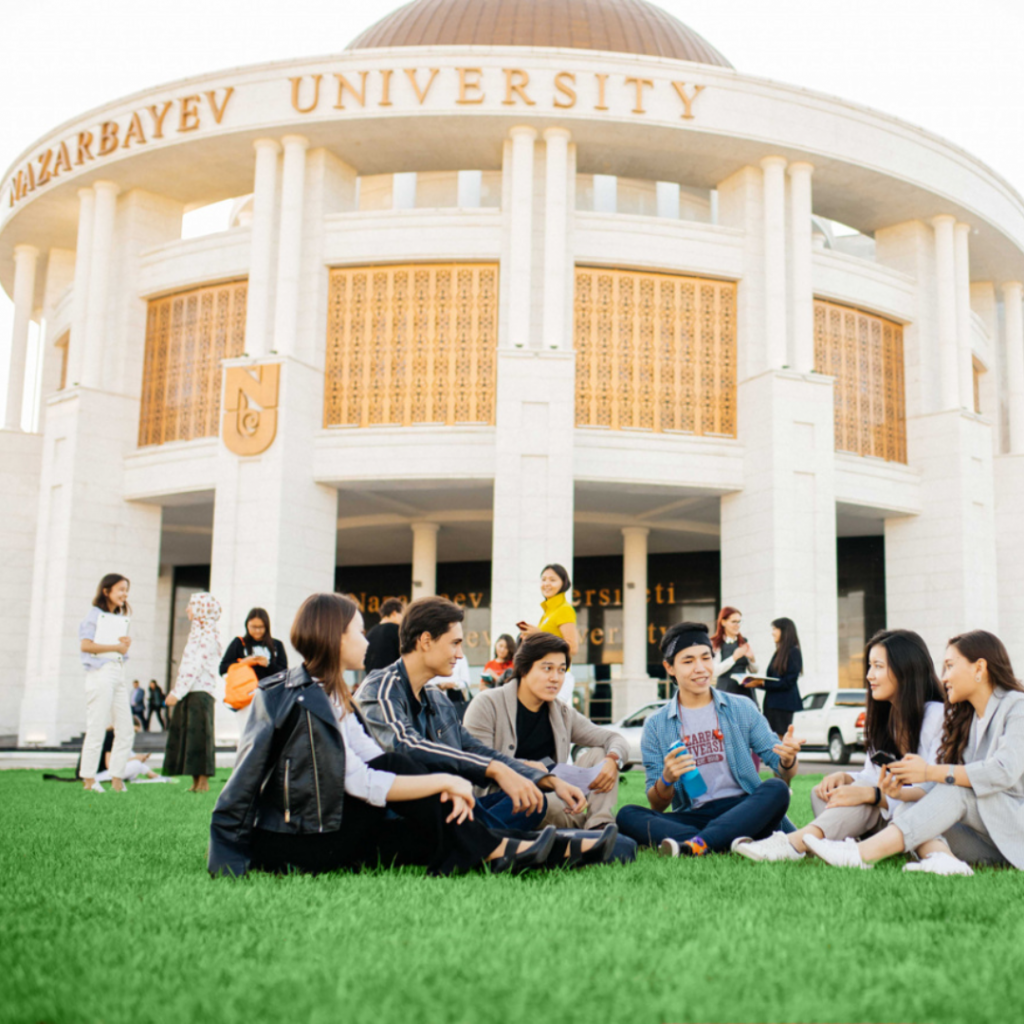



Мектеп туралы
Инженерия және цифрлық ғылымдар мектебі инженерлерді оқытудың тұтас және толық тәсілдерін ұсыну арқылы Қазақстандағы өнеркәсіп секторының жетекші мамандарын дайындайды. Инженерия және цифрлық ғылымдар мектебінде Студенттік өмір көптеген қызықты оқиғаларға толы: дәрістер мен семинарлар және практикалық тапсырмалармен қатар Инженерия және цифрлық ғылымдар мектебінде баға жетпес көптеген жобалар, конкурстар, көрмелер, өнеркәсіп нысандарына бару және студенттің тар аядан кең ойлауға, шығармашылыққа, нақты өндірісті жақсы түсіну мен пайдалы тәжірбие алуға мүмкіндік беретін іс-шаралар ұйымдастырылады.
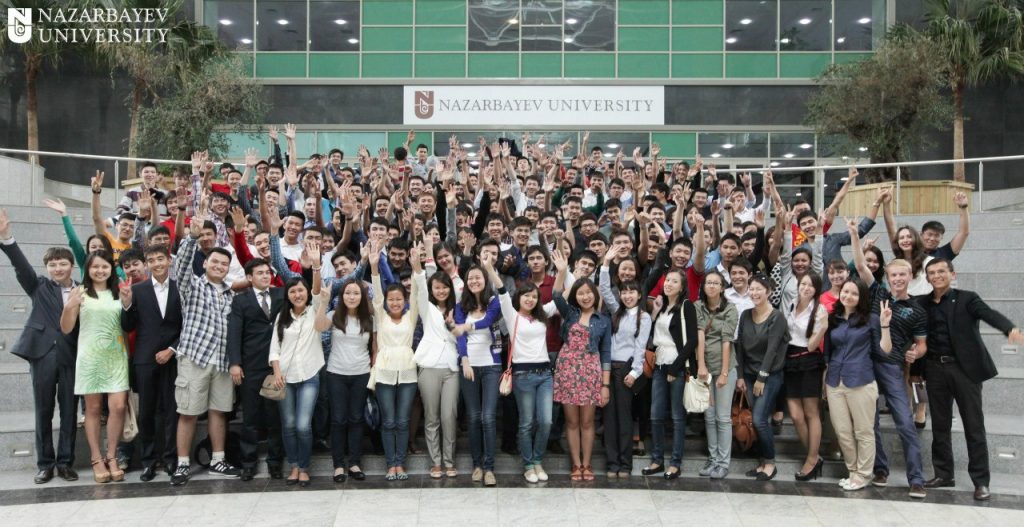
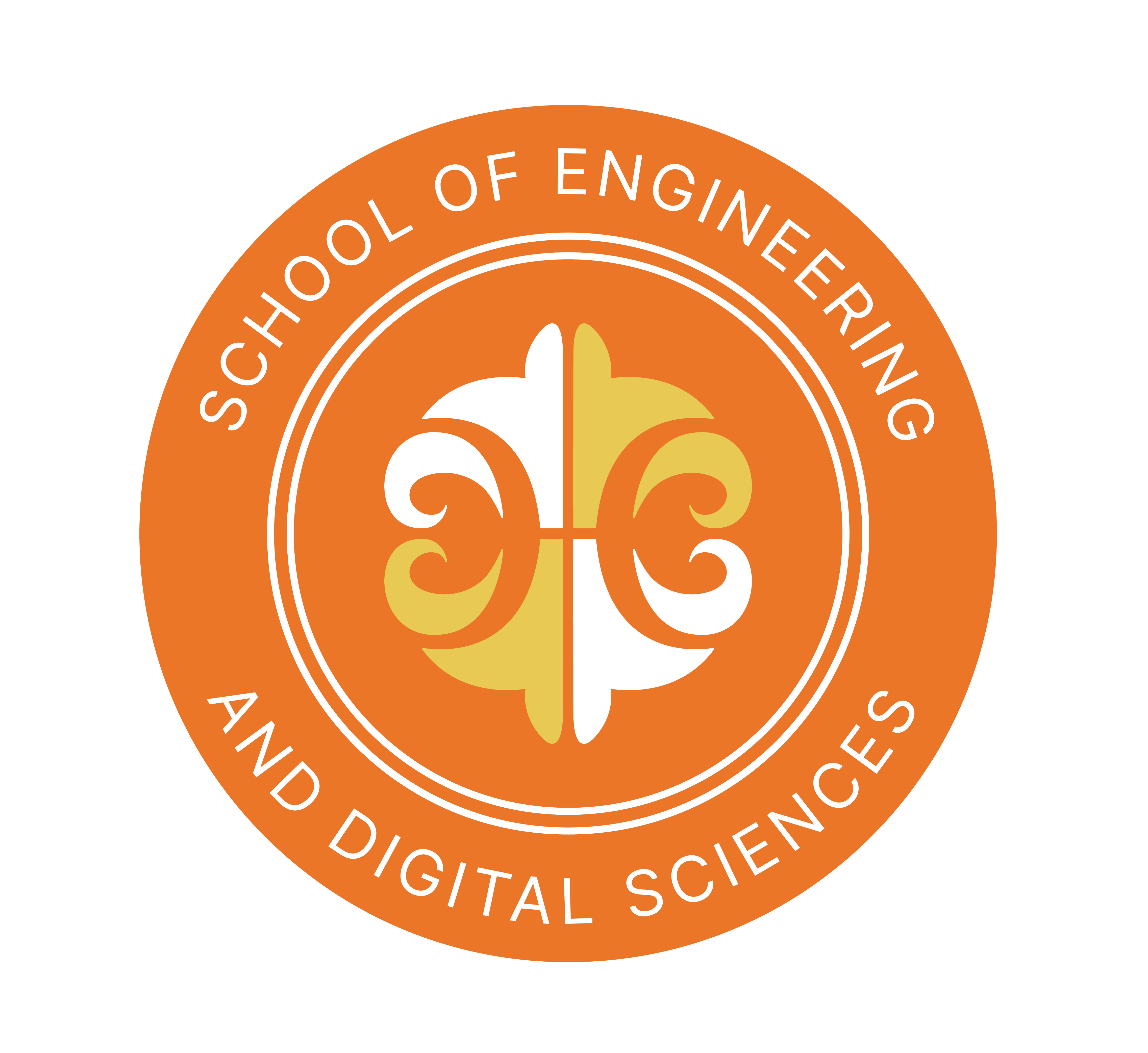
Инженерлер қатаң әлеуметтік жауапкершілікті аңғара отырып жарқын болашақ үшін ұмтылады. Инженер ретінде, сіз әрқашан қоғамға және ғаламшарға деген көмектің нақты нәтижелерін көре аласыз.
Пікірлер
Біздің түлектер Назарбаев Университетінің Инженерия және цифрлық ғылымдар мектебі туралы не айтатынын біліңіз!
Біздің студенттер креативті, батыл, табысты, дарынды және мақсатты. Мүмкін, сен сияқты!
Біз студенттердің жетістіктері үшін жұмыс істеуге тырысамыз. Біз әрқашан жақсы сапалы білім беру үшін олардың ұсыныстары мен пікірлерін ескереміз!
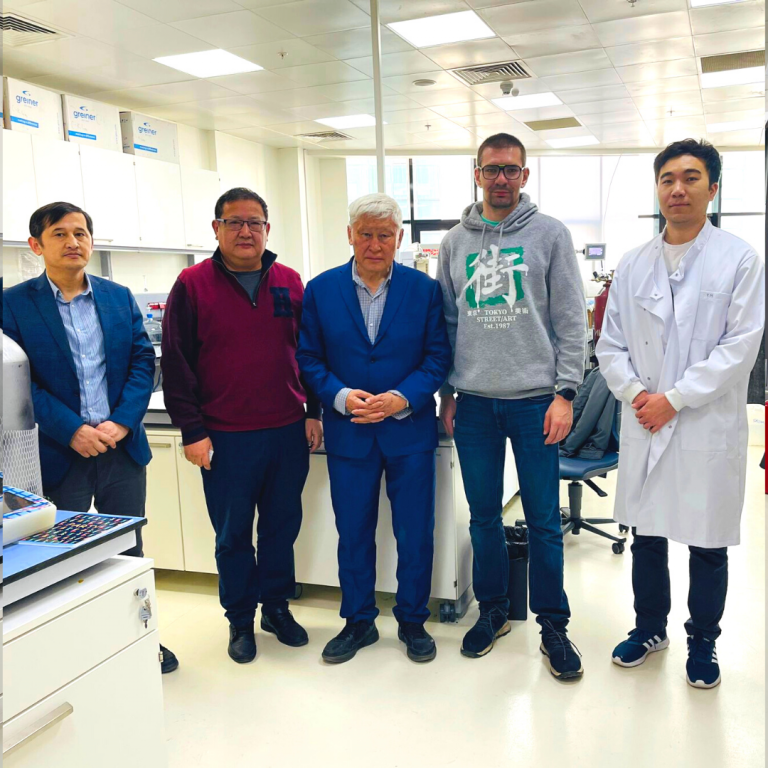
-
NU SEDS Қазақстан Республикасының азаматтары үшін магистратура және докторантура бағдарламаларына түсу үшін онлайн өтінімдерді қабылдау мерзімінің ұзартылуы туралы хабарлайды
-
NU SEDS ғылыми-зерттеу қызметін белгілі қазақстандық ғалым Асқар Жұмаділдаев жоғары бағалады
-
2022 жылғы «Үздік ғылыми қызметкер» байқауының жеңімпаздары анықталды
-
2023-2024 оқу жылына арналған NU SEDS бағдарламаларына түсу конкурсына қатысу үшін онлайн өтінімдерді қабылдау басталды
-
NU еншілес зерттеушілері әлемдегі ең жақсы 2% ғалымдардың қатарына кіреді
-
Назарбаев Университетінің профессорлары мен студенттерінің бірлескен ғылыми жұмысы материалтану саласындағы ең беделді журналда жарияланды
-
Қазақстан мен Франция инженерлік мамандық бойынша студенттерді бірлесіп оқытуға келісті
-
NU SEDS-тің 100-ден астам студенті ең жоғары жетістіктерге қол жеткізіп, «Декан тізіміне» енді
-
Инженерия және цифрлық ғылымдар мектебі Үздік Жаһандық Университеттердің халықаралық рейтингінде бірден 81 сатыға жоғарылады
-
NU SEDS студенттері «National Student Energy Challenge-2022» байқауының жеңімпаздары атанды
Жаңалықтар
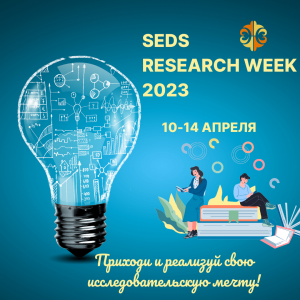
Рекомендуем не пропустить! Особенно тем, кто хочет заниматься наукой в стенах NU. Впервые Школа инженерии и цифровых наук NU с 10 по 14 апреля проводит SEDS Research Week. В течении 5 дней вы узнаете о научных проектах SEDS, о том, как можно стать научным ассистентом, а также о академических программах и научных возможностях в SEDS.
Помимо этого, вы посетите научные центры Университета, такие как NU ISSAI (Институт умных систем и искусственного интеллекта) и NURIS Fab Lab (Лаборатория цифрового протипирования) и познакомитесь с их уникальными проектами.
Также, вам покажут и даже научат работе на 3D принтере, лазерном станке, на плоттере и расскажут о шелкографии на тканях. Но это еще не все!
У вас есть уникальный шанс посетить научные лаборатории NU, где ученые ставят свои опыты и делают научные открытия.
В завершении недели вас ожидает интеллектуальный вечер в стиле TED. Лучшие профессора NU SEDS поделятся своими идеями о том, как стать успешным в науке.
Помните, в течение недели у вас будет возможность участвовать в розыгрыше памятных подарков от NU SEDS.
Нажмите сюда!

Өткізіп алмауға кеңес беріледі! Шара әсіресе, НУ қабырғасында ғылыммен айналысқысы келетіндер үшін айырықша құнды болмақ. НУ Инженерия және цифрлық ғылымдар мектебі 10-14 сәуір аралығында алғаш рет SEDS зерттеу апталығын өткізеді.
5 күн ішінде сіздер SEDS зерттеу жобалары көрмесінде SEDS-тің ғылыми зерттеу қызметімен таныса аласыздар. SEDS-тегі ғылыми ассистенттерге арналған бос жұмыс орындар жәрмеңкесінде бізге қалай жұмысқа тұруға болатынын білесіздер және қолжетімді ғылыми мүмкіндіктер туралы ақпарат аласыздар.
Университеттің NU ISSAI (Ақылды жүйелер мен жасанды интеллект институты) және NURIS Fab Lab (Цифрлық прототиптеу зертханасы) сияқты ғылыми орталықтарына барып, олардың бірегей жобаларын өз көзіңізбен көресіз.
Бұдан бөлек, сізге 3D принтер, лазерлік машина, плоттермен қалай жұмыс істеу керектігі және жібекке сурет салу тәсілі көрсетіледі әрі үйретіледі.
Ең бастысы, сізге ғалымдар ғылыми жаңалықтар ашатын ғылыми зертханаларға кірудің бірегей мүмкіндігі беріледі.
Апта TED стиліндегі интеллектуалды кешпен аяқталады. Онда NU SEDS-тің ең мықты профессорлары ғылымда табысқа жету жолдары туралы бірегей идеяларымен бөліседі.
Есіңізде болсын, апта ішінде сіз NU SEDS-тің естелік сыйлықтарын ұтып алу мүмкіндігіне ие боласыз.
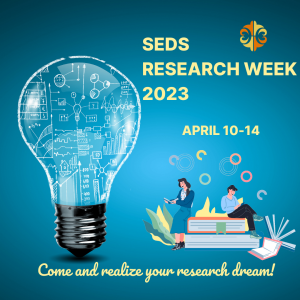
Mark your calendar!
The School of Engineering and Digital Sciences will hold SEDS Research Week from 10 to 14 April for the first time. Over five days, you will:
Discover SEDS’ current research activities at SEDS Research Projects Exhibition;
Learn about graduate academic programs and the research opportunities available at SEDS;
Find out how you can join SEDS as a research assistant at RA’s Job Fair;
Visit the University’s research centers, such as NU ISSAI (Institute of Smart Systems and Artificial Intelligence) and NURIS Fab Lab (Fabrication Laboratory), and get a glimpse of their unique projects.
But that’s not all!
You will also be shown and even taught how to operate a 3D printer, laser machine, and plotter and learn about textile silkscreening.
You will get a unique chance to visit NU’s research laboratories, where our scientists conduct experiments and make breakthroughs.
The week ends with a TED-style intellectual evening Top NU SEDS professors will share their unique ideas on becoming successful in academic world.
Remember, during the week, you will have a chance to win memorable gifts from NU SEDS.
Click here for more details (SEDS Research Week Schedule)

Nazarbayev University School of Engineering and Digital Sciences (SEDS) invites you to attend the research seminar “Analysis of cognitive properties of interactive systems using model checking” by Associate Professor Antonio Cerone, Department of Computer Science, NU SEDS.
Date: 10 May 2023, Wednesday
Time: 2 pm
Location: Block 3, Room 3E 221
Antonio Cerone is an Associate Professor of Computer Science at Nazarbayev University, Kazakhstan. Previously he has been working at the IMT School for Advanced Studies Lucca, the United Nations University, the University of Queensland, the University of South Australia, the Goethe University Frankfurt and the University of Pisa. His main research focus is on formal methods and their application to several domains, including human-computer interaction, safety, security, systems biology and ecology. He is also interested in cognitive science, open source development, process mining and collaborative learning. Antonio is the founder and Chair of the Steering Committee of the «International Conference on Software Engineering and Formal Methods» (SEFM), which is not at its 21st edition, and the co-founder and a Steering Committee member of the «International Symposium DataMod: From Data to Models and Back».
ABSTRACT: Interactive systems may appear to work correctly and safely when analyzed in isolation from the human environment in which they are supposed to work. In fact, the same cognitive skills that enable humans to perform complex tasks may also become the source of critical errors in the interaction with systems and devices designed as supports for such tasks. It is thus essential to verify the desired properties of an interactive system using a model that not only includes a user-centered description of the task, but also incorporates a representation of human cognitive processes within the task execution.
This seminar introduces the Behaviour and Reasoning Description Language (BRDL), a notation for rigorously describing human tasks in terms of the cognitive processes associated with human cognition: perception, attention, and information storage, processing and retrieval. The semantics of BRDL is based on a basic model of human memory and memory processes and is adaptable to the different cognitive theories that have been developed in psychology. This allows us, on the one hand, to keep the syntax of the language to a minimum, thus making it easy to learn and understand without requiring expertise in mathematics or formal methods and, on the other hand, to use semantic variations to compare alternative theories of memory and cognition. Such semantics variations have been implemented using Maude, a modelling language and tool that supports both simulation and formal analysis of properties using model checking. Within the Maude implementation the BRDL model can be combined with the formal model of a computer system, thus modelling human-computer interaction. Therefore, BRDL can be successfully used at two levels: (1) as an informal modelling and reasoning tool for domain experts from the areas of psychology and usability evaluation, and (2) as a formal tool for performing in silico experiments on human cognition, behaviour and learning and for carrying out the simulation and formal verification of interactive systems.
Follow this link and register now : NU SEDS Research Seminars | Registration form – Google Forms


